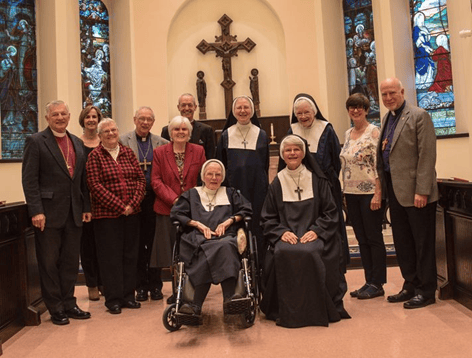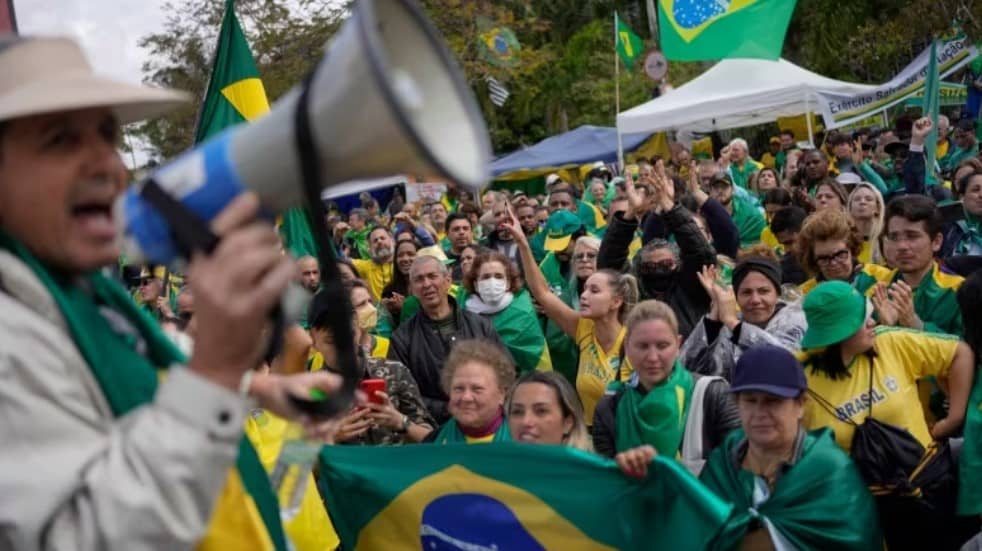ROCKVILLE CENTRE, New York — Retired Auxiliary Bishop Emil A. Wcela of Rockville Centre died May 21 at age 91.
Bishop John O. Barres of Rockville Centre said the late prelate, who retired in 2007, was “a humble man, fine Scripture scholar, faithful pastor and dedicated bishop.”
“We give thanks to almighty God for the life and priesthood of Bishop Emil Wcela,” Barres said. “He served the people of the Diocese of Rockville Centre for over 65 years in our parishes, the work of priestly formation as professor and seminary rector, and as vicar of the eastern vicariate.
“His passion for the word of God inspired generations and helped many to know the love and mercy of God. May his soul rest in peace.”
On May 26, a wake for the late bishop will take place from 2 p.m. to 5 p.m. at the Church of St. John the Evangelist in Riverhead, New York, followed by a 7:30 p.m. vigil Mass of transferral. Bishop Barres will be the celebrant and retired Auxiliary Bishop John C. Dunne of Rockville Centre will be the homilist.
On May 27, the funeral Mass will be celebrated `t 11 a.m. at the Church of St. John Nepomucene in Bohemia, New York, by Auxiliary Bishop Robert J. Coyle of Rockville Centre. The homilist will be retired Bishop William F. Murphy of Rockville Centre.
Born in Bohemia May 1, 1931, Emil Aloysius Wcela attended St. John Nepomucene School in Bohemia and graduated from Seton Hall High School in Patchogue, New York. He went on to St. Francis College in Brooklyn, New York, and studied for the priesthood at Immaculate Conception Seminary in Huntington, New York.
He was ordained a priest for the Diocese of Brooklyn June 2, 1956, and was incardinated into the Diocese of Rockville Centre after that diocese was created the following year.
After serving as associate pastor of Maria Regina Church in Seaford, New York, he was appointed in 1959 to the faculty of St. Pius X Preparatory Seminary where he taught Latin. During this time, he also served as chaplain of the Newman Club at Hofstra University in Hempstead, New York.
Wcela pursued classical studies at Jesuit-run Fordham University in New York. In 1961, he was assigned to advanced studies at The Catholic University of America in Washington and then at the Pontifical Biblical Institute in Rome. He had master of arts degrees in classical studies from Fordham and in Semitic studies from Catholic University.
He earned licentiate degrees in theology from The Catholic University of America and in sacred Scripture from the Pontifical Biblical Institute. He also studied at the École Biblique in Jerusalem.
In 1965, Wcela was assigned to the faculty of Immaculate Conception Seminary in Huntington, where he also was rector from 1973 to 1979. He also served as director of the program for the continuing education of priests from 1969 to 1975.
Wcela was the author of six books in a Bible study series, “God’s Word Today,” published by the Pueblo Publishing Co., and of many articles and book reviews in such publications as the Catholic Biblical Quarterly and The Bible Today.
In 1979, Wcela was named pastor of St. Joseph’s Church in Garden City, New York. He served there until 1987 when he took a sabbatical at Immaculate Conception Seminary.
On Jan. 21, 1988, Wcela was named founding pastor of Resurrection Church in Farmingville, New York. He also served on the priest personnel board, which advises the bishop who heads the Rockville Centre Diocese on policy governing the assignment of priests to parishes.
In 1980, St. John Paul II named Wcela a monsignor. On Oct. 25, 1988, the pope appointed him auxiliary bishop of the Rockville Centre Diocese. His episcopal ordination was Dec. 13, 1988, at St. Agnes Cathedral in Rockville Centre.
He was vicar for the diocese’s eastern vicariate until his retirement April 3, 2007.
Wcela was a former president of the Catholic Biblical Association and chairman of its board of trustees. He also headed an interdisciplinary committee of the U.S. bishops that advanced a proposal that any time between age 7 and age 18 would be a suitable age for the sacrament of confirmation.
He also was a former chairman of the U.S. bishops’ Committee on Pastoral Research and Practices.
The committee recommended in 1991 that lay preachers be used at some Masses because of what Wcela called the broad “ethnic diversity in the United States,” resulting in priests celebrating Mass sometimes not speaking the language of the congregation, but the proposal was voted down by the bishops.
His committee in 1995 advanced guidelines for celebrating the Eucharist for persons with disabilities which were approved by the bishops.
In a 1999 interview, Wcela urged caution in using new technologies in religion.
“For Catholics, the most common experience of the Bible has been at Mass,” he said. If the computer technology becomes the primary way people get the Bible, he added, the result could be an individualistic religion of “God in me” that finds no place for gathering with other Christians at the Eucharist.
He also was an adviser to the animated 1998 film “Prince of Egypt,” and wrote a study guide on the film for Catholics that was made available on the internet.
His “The Word of God” column, which was published in The Long Island Catholic, which was Rockville Centre’s diocesan newspaper, won a Catholic Press Association award in 2002 for best regular column.
Wcela made headlines with an Oct. 1, 2012, article in America magazine arguing for women deacons.
“Women already minister extensively in the church. Consecrated religious serve in various fields. Thousands of other women serve in diocesan offices; in parishes as administrators, pastoral associates, directors of religious education, in the whole spectrum of parish life; in hospitals; in prisons,” he wrote.
“In contrast to the women of ancient times, women today play a very important part in public life, holding high offices in government, business, the professions and education,” he continued. “Cultural reasons to exclude women from the diaconate, at least in the West, no longer apply.”
“Ordaining women as deacons who have the necessary personal, spiritual, intellectual and pastoral qualities would give their indispensable role in the life of the church a new degree of official recognition, both of their ministry and of their direct connection to their diocesan bishop for assignments and faculties,” he said.
“Who knows what new and grace-filled enrichment of that ministry might grow from the ordination of women as deacons?” he asked.
Wcela emphasized that “the ordination of women to the diaconate is separate from the question of the ordination of women to the priesthood, as this discussion has, I hope, shown.”

















